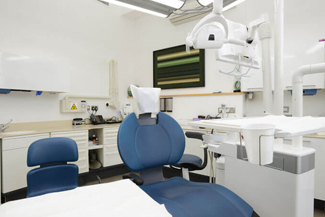Most women know that if they are pregnant, or have just had a baby, they will need to keep a very close eye on their oral health, to ensure that the hormonal fluctuations caused by the pregnancy do not cause long term damage to their teeth or gums.

But what about women who are going through perimenopause, or even menopause itself? Can this natural process cause issues with dental health too?
At Harley Street Dental Clinic, our dentist W1 is trained and able to help women cope with every stage of their life, ensuring that any hormonal changes that are created by pregnancy, childbirth, menopause or hormone replacement will not create long-term problems with their dental health.
So, what issues can perimenopause and menopause create in your mouth? Our dentist W1 provides the following guide.
Periodontal disease
It is nothing short of an annoyance that menopause can cause gum disease.
According to our dentist W1, this is due to the fluctuating hormone levels, which can lead to the gums becoming hypersensitive to the presence of plaque and bacteria in the mouth. In normal circumstances, this bacteria would not be problematic, but due to surging and decreasing hormones, it can create an extreme response from the immune system, leading to inflammation and gum disease.
If you have noticed that your gums are sore, bleeding or inflamed, please contact our team for a check-up as soon as possible.
Dry mouth
Many people experiencing menopause notice that their mouths become dry more easily, due to an underproduction of saliva.
This may not seem like an issue, but it can in actuality increase the chance of tooth decay. Saliva in the mouth plays an important role in the daily removal of bacteria and plaque from your teeth and so, if it is being underproduced, it can lead to consequences such as an increased risk of cavities and tartar formation.
Our team can mitigate this issue by applying a fluoride sealant to your teeth, to prevent the chance of decay from forming and providing an extra barrier against plaque and bacteria.
Tooth decay
In the same way that hormonal fluctuations can cause the gums to swell, they can also cause the calcium in the teeth to reduce. And, if you have a family history of conditions like osteoporosis or another degenerative bone disease, then you may begin to notice a higher incidence of tooth decay around the time of menopause.
In this instance, we recommend that you talk to your doctor and we can help by applying fluoride sealants alongside performing white fillings as and when they are required.
Tooth loss
Don’t panic, but menopause and associated issues can lead to tooth loss.
Declining oestrogen levels in the body can lead to bone loss in areas such as the hips and the spine, but can also cause bone loss in the jaw, which can lead to tooth loss and jawbone loss. We can aim to restore teeth that have been lost in this way using dental implants, depending on the extent of the bone loss or dentures.
